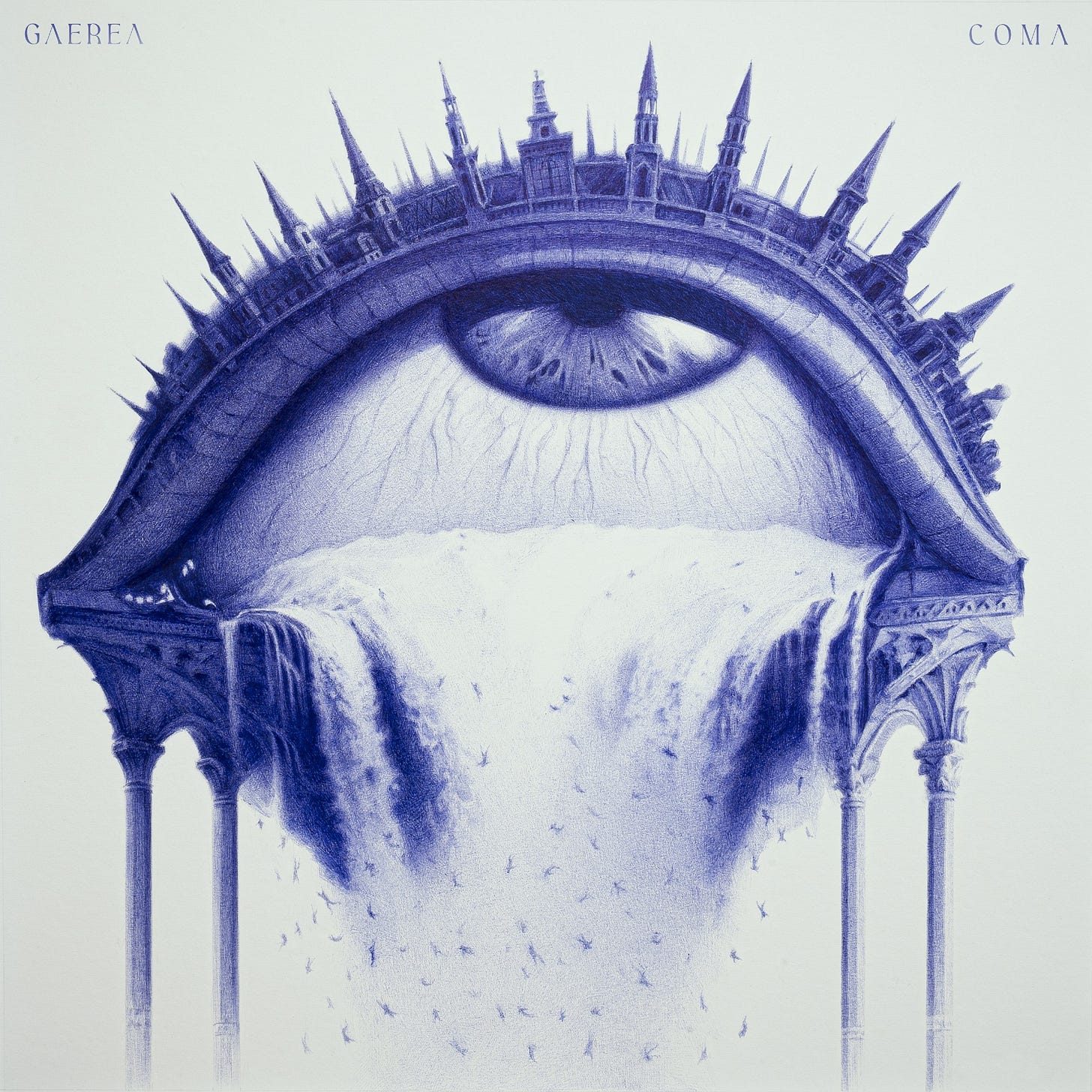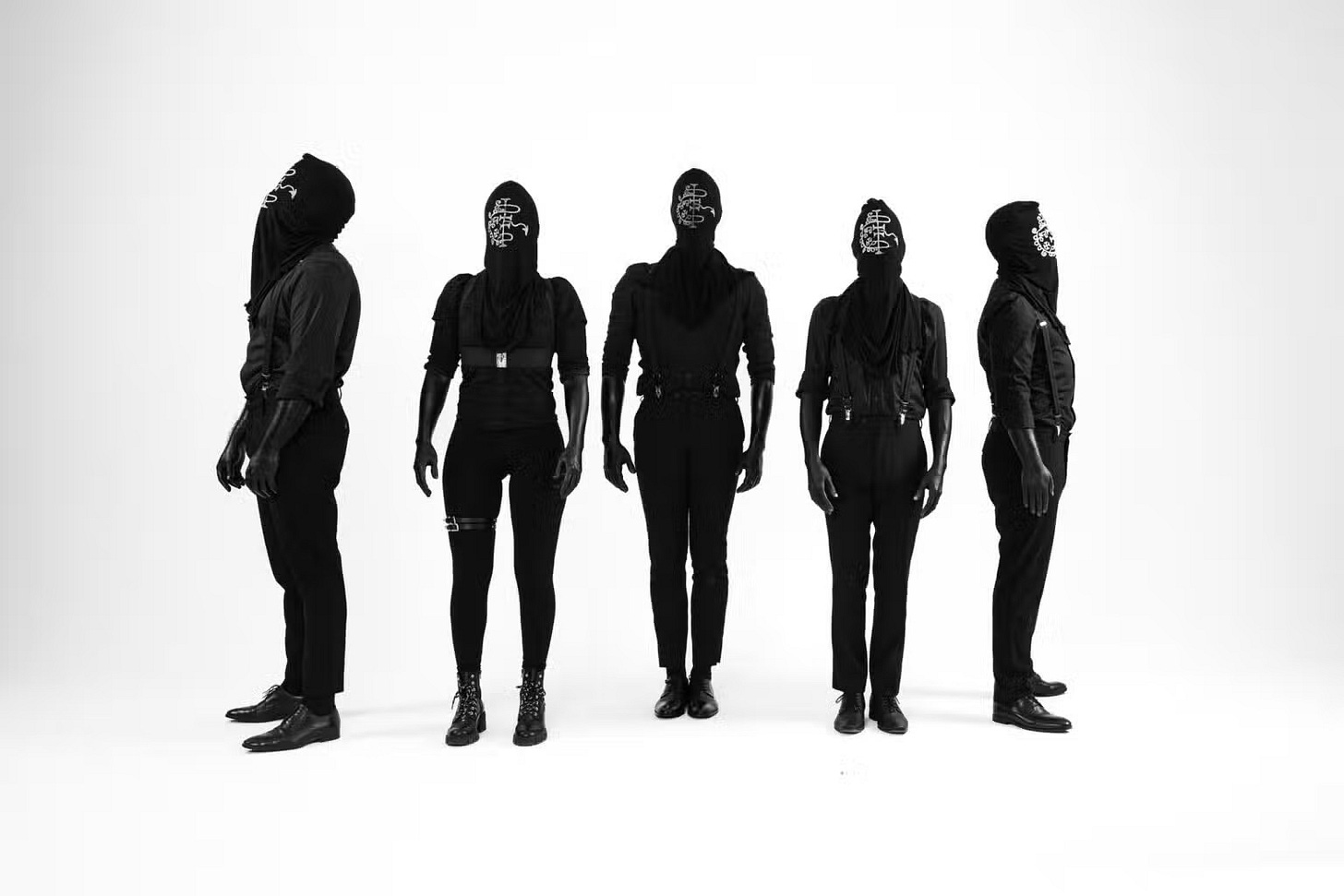Remember when I said OSDM bands underwent a stylistic shift by the late 2010s and early 2020s?
Yeah, a similar thing happened in the realm of black metal, too.
During the later part of the last decade, there was a surge in black metal bands/projects who took after the sound made famous by none other than the Polish Mgła (this was once brought up in the Groza review - read here). After a few years, quite a handful of these so-called Mgła-clones languished, while others continued in different directions: the German Non Est Deus - while still true to their original DNA for the most parts - injected bits of darker, more apocalyptic voicing a la Panzerfaust into their music, while their countrymen Groza turned to the side serene, more melancholic side that is post-black/blackgaze. There is also the American Uada who returned to and further embraced the second-wave roots of Dissection and even a little bit of Dawn.
What about Gaerea?
Since their inception in 2016, the Portugal-based act has been making a point that they are standing out among the rest and pushing themselves as far as they can, both in terms of theatricality and musicality. While it’s much too easy to don a hood and call it a day, their onstage presence is on a level head and shoulders with the liturgical Batushka, while their music - as rooted in the modern midtempo territory as it is - can be heard exploring a vast range of expression: shimmering post-metal, gazey passages, dissonant lead lines that hark to the Icelandic, and now: hardcore and metalcore.
While this kind of energy is quite prominent in Gaerea’s latest full-length “Coma”, to call it blackened hardcore would be incorrect, as such a term is reserved and more appropriate for bands like Celeste or Hexis - both having hardcore their primary sound and lace it with black metal element. For the case of this particular album, think of it as how Dödsrit incorporates crust into their black metal DNA. “Coma” features a lot of hardcore/metalcore phrasing and patterns - especially in its drumming: this can be best heard in tracks such as “Suspended”, “Shapeshifter”, and the closer “Kingdom of Thorns” - with beats and fills found to be highly reminiscent of Code Orange, Parkway Drive, or even Killswitch Engage. Having said that, “Coma” is still a black metal album, through and through. Or so it does seem.
So it does seem.
From my personal viewpoint, “Coma” - and Gaerea, in general - is among the things that really epitomize the state of extreme metal - or at least a significant portion of newcoming bands - within the context this decade - and perhaps even the oncoming years: that is, these are the bands that would present themselves as adherents of a specific, familiar genre like black metal or death metal, and to an untrained pair of ears, they would sure as hell sound so; but a closer look would reveal a homogenization between said genres with other, more modern genres - to varying degrees. This is, of course, nothing new: genres like blackgaze and deathcore were born thanks to this, and even the current sound death metal came to be because of it.
Is this necessarily a bad thing? If done correctly, no - as proven by “Coma”. From the first moment to the very last, this is an undoubtedly well-written and well-made album that can be highly enjoyable and immersive, as well as thought-provoking in an artistically existential regard for those who ever ponder about its nature. At worst, it only irks the elitists who would cry from the top of their lungs in advocation for genric purity - in this specific case: keeping black metal, well, black metal.
But regardless of what you and I think, there will always be bands like Gaerea and norm-defying albums like “Coma”, who are the driving forces of extreme metal’s ongoing metamorphosis.






